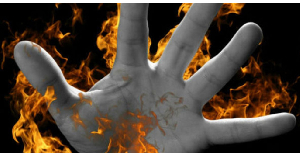Vice President Aliu Mahama on Wednesday announced several strategies being implemented by the Ministry of Health to improve patients' access to preventive and relief oral health services.
The dentist to patient ratio is 1:200,000, with only 15 of the 78 public and private dental clinics in the country sited in the rural areas.
To help address the imbalance, the Kintampo Rural Health Training School, would in October, start training middle level oral health personnel to provide basic dental service at the district and sub-district levels.
Vice President Mahama said these when he commissioned six vehicles and four sets of portable dental equipment at Korle Bu Teaching Hospital, Accra as one of the programmes to strengthen mobile oral health care in deprived areas in the Eastern, Northern, Western and Brong Ahafo Regions.
He gave the assurance that the government would secure additional funds for more equipment to cover the remaining six regions by next year.
The OPEC Fund sponsored the first phase of the equipment, which included accessories and generators, with 300,000 dollars.
Vice President Mahama said: "The government is committed to promoting oral health and with the provision of these facilities in our rural communities, oral health will improve in several ways."
He urged the Ministry of Health to provide the requisite assistance to the Kintampo Training School to start its programme on schedule.
The Vice President tasked the personnel in-charge of the equipment to regularly maintain them to ensure their durability and thanked OPEC for its assistance.
Giving more details about plans to improve oral health care, Minister of Health, Dr Kwaku Afriyie said the Ministry was negotiating with Enraf-Nonius Projects B.V. of Holland, to set up a National Rural Dental Services, which would involve establishing dental clinics in the districts and the training of personnel to man them.
Dr Afriyie said more dental technicians and schoolteachers would be trained to promote oral health care in schools.
He expressed concern about the low number of oral health personnel in the rural areas, which he said was only 20 per cent.
As a result, Dr Afriyie said more than 90 per cent of children in the districts had poor oral hygiene, while there was a deterioration of oral hygiene of all age groups in rural areas.
The Minister said studies had shown a strong correlation between heart diseases and poor oral hygiene and, therefore, urged Ghanaians to take their oral health seriously.
He noted that premature loss of teeth was common in rural areas, with mal-nutrition being higher among adults who had lost their teeth and could not replace them with dentures.
Dr David Oppong Mensah, Head of Oral Health Unit of the Ghana Health Service (GHS), said the new equipment and vehicles would address the deficiencies in the mobile dental clinics programme initiated in 1994.
Hitherto, he said the mobile clinics did not have their own vehicles and had to often cancel their programmes when they could not secure one.
"Both patients and dentists were not comfortable during service provision since appropriate structures for treatment are not available," he said.
He appealed to the GHS to provide seed money to the four beneficiary Regions, identified as the most deprived, to embark on outreach programmes.
General News of Thursday, 13 March 2003
Source: GNA












